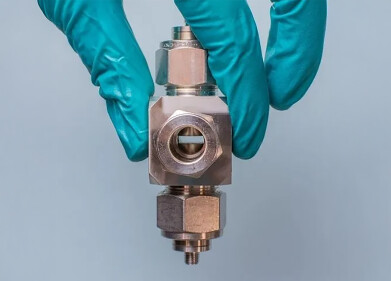Analytical Instrumentation
International Energy Agency Highlights Twin Threats to Oil
Feb 21 2020
In the face of price instability and growing environmental awareness, the International Energy Agency (IEA) is warning against a "twin threat" that could cripple the global oil and gas industry. As the climate crisis escalates, the energy industry is on track to not only lose profits but also social acceptability.
"The increasing social and environmental pressures on many oil and gas companies raise complex questions about the role of these fuels in a changing energy economy, and the position of these companies in the societies in which they operate," reads a recent report issued by the IEA. “Oil and gas companies have been proficient at delivering the fuels that form the bedrock of today’s energy system; the question that they now face is whether they can help deliver climate solutions.”
IEA slams energy industry for slow progress
The report slams the oil industry for failing to prepare for the transition towards clean energy and instead, continuing to focus on non-renewables. Currently, the IEA claims companies are spending just 1% of their capital expenditure is being allocated to projects other than key oil and gas exploration, development or extraction. Even the top performing companies are investing just 5% of capital expenditure on non-oil and gas related projects, such as solar energy and electric vehicle charging infrastructure.
Questions surrounding profitability have also been raised over the past decade, with free cash flow from projects run by the world's biggest oil majors trailing the total amount issued to shareholders by an alarming US$200 billion. This suggests that even the largest oil and gas companies can't afford to finance their operations while meeting the demands of shareholders.
Majors urged to curb greenhouse gas emissions
To avoid losing social acceptability, the IEA says the oil and gas industry needs to take immediate action on greenhouse gas emissions. Currently, around 15% of greenhouse gas emitted by the energy sector comes from upstream production. According to the IEA, “reducing methane leaks to the atmosphere is the single most important and cost-effective way for the industry to bring down these emissions.” The IEA asserts “the transformation of the energy sector can happen without the oil and gas industry”, suggesting companies such as Chevron, Total, ExxonMobil, BP and Shell should act now to stay relevant.
Methane leaks aren't the only major contributor to climate change, with sulphur emissions also a serious concern. For a closer look at the latest technologies being used by petrochemical industries to detect impurities at extremely low levels, meet strict government regulations, protect catalysts and safeguard product quality, don't miss 'Sulphur analysis in aromatic and Naphtha hydrocarbon stream of petroleum products and crude oil.'
Digital Edition
PIN 25.5 Oct/Nov 2024
November 2024
Analytical Instrumentation - Picturing Viscosity – How Can a Viscometer or a Rheometer Benefit You? - Sustainable Grease Formulations: Evaluating Key Performance Parameters and Testing Method...
View all digital editions
Events
Dec 03 2024 Dusseldorf, Germany
Dec 08 2024 Anaheim, CA, USA
Turkey & Black Sea Oil and Gas
Dec 11 2024 Istanbul, Turkey
Dec 19 2024 Aurangabad, India
Jan 20 2025 San Diego, CA, USA



















